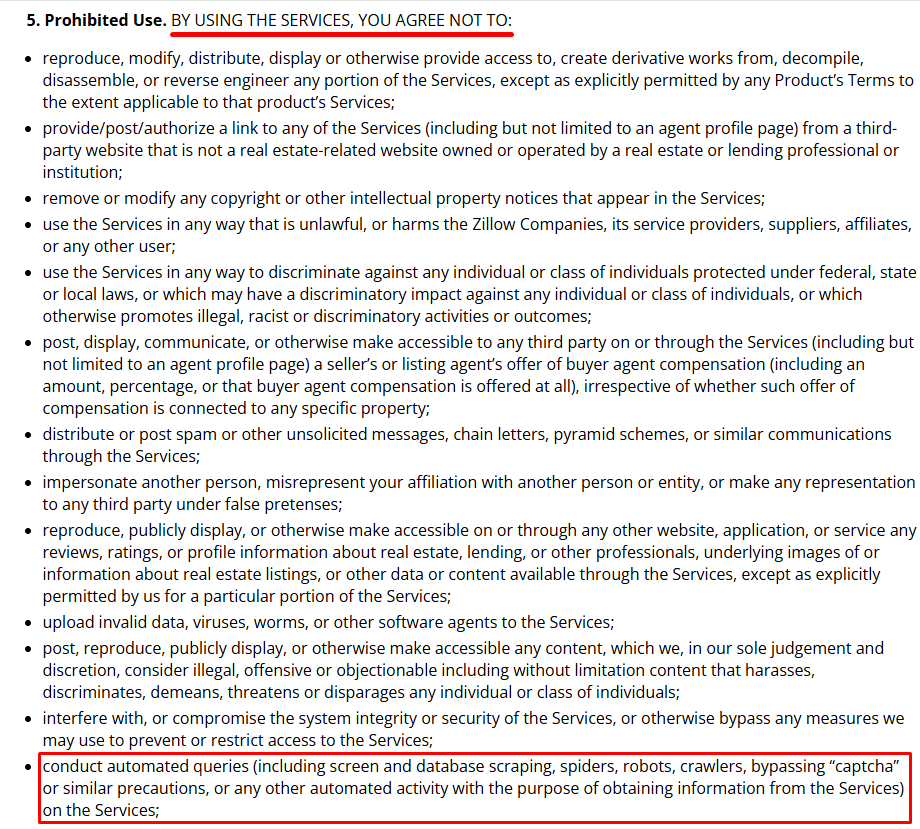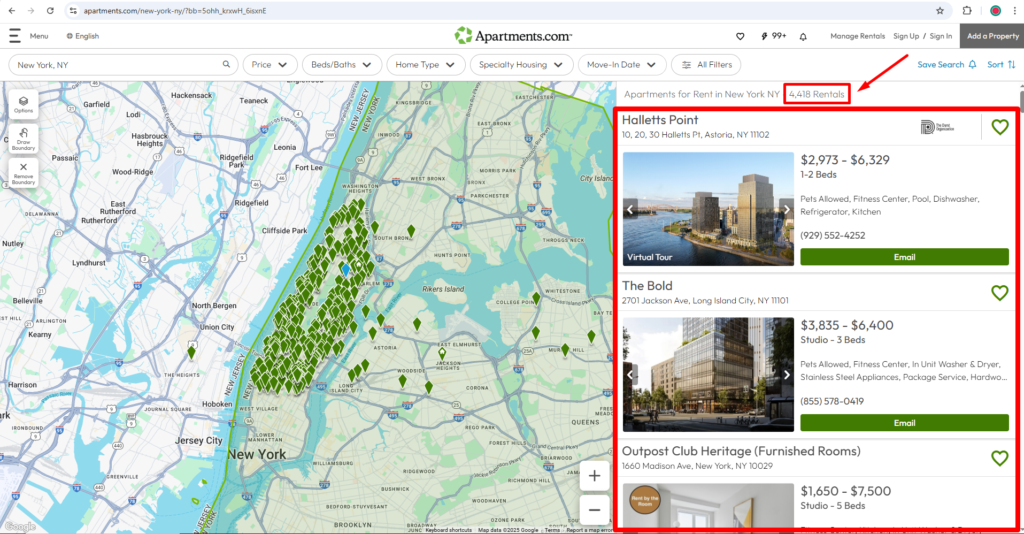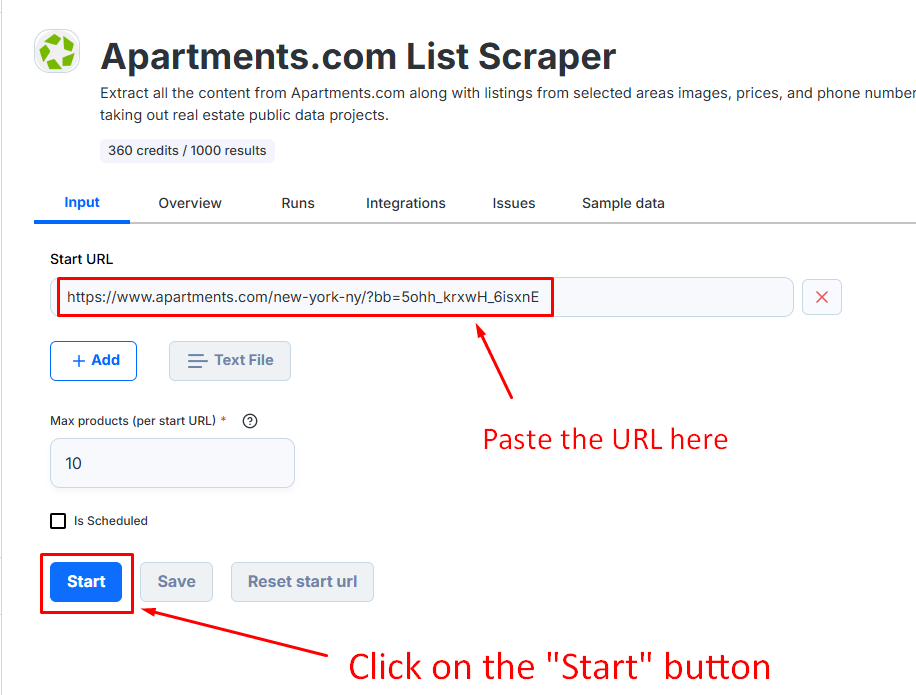
Is It Legal to Scrape Real Estate Data? Here’s the Truth
A few days ago, a friend of mine was working on a real estate project. He needed a large number of property listings to compare prices, locations, and trends. He thought, “Why not just collect it all from real estate websites?” After a few hours of copying and pasting manually, he realized it would take an eternity.
And then on the internet, he discovered web scraping — a quicker method of gathering information from websites. It seemed like perfection… until he asked the big question: “Wait, is scraping illegal?”
That’s a question that many have when they first learn about web scraping. The thing is, it can be legal — but only if you do it the right way.
In this guide, we will break down what scraping real estate data actually is, when it is legal, and when it isn’t, and what you should be looking out for.
And as a bonus, we’re going to also walk through how to get started without making it complicated.
Let’s dive in!
What is Scraping Real Estate Data?
Scraping real estate data means to collect real estate property-related information from websites using automated tools or bots, such as:
- Property name
- Property prices
- Property descriptions
- Property images
- Agent or broker contact details
- Historical sales data
- Neighborhood demographics
- Mortgage rates
- And many more
Websites like Zillow, Realtor.com, and Redfin are common targets of real estate web scraping because they have vast databases.
This data helps you a lot, but scraping it can clash with the site owner’s rights and legal protections.
Is It Legal to Scrape Real Estate Data?
The answer isn’t a simple yes or no. The legality of web scraping lies in a gray area and largely depends on:
1. The Source of the Data
Scraping publicly available real estate data is generally legal, but scraping private data or data behind login walls is illegal.
But “public” doesn’t always mean “free to use”.
Many real estate websites say no to web scraping in their Terms of Service (ToS).
If you violate their terms, then:
- You may get a legal notice
- Your IP might be blocked
- You could get sued under a U.S. law called the CFAA
2. Terms of Service (ToS) Violations
Always check the ToS of real estate platforms before scraping them, because many real estate platforms say “don’t scrape”.
If you violate these terms, you could lead to civil lawsuits for breach of contract.
For example, Zillow strictly prohibits scraping in their ToS.

3. Be Careful What You Do with the Data
Just because information is available on the internet doesn’t mean you can do anything you want.
- If you scrape real estate data and you sell that data for some money, then you may get into legal trouble.
- If you use scraped email addresses or phone numbers to send spam emails or for cold calls, that may violate spam laws like CAN-SPAM or GDPR.
- And if you use the data and pretend it’s yours—particularly if it just looks like the way the original site presented it—you might face copyright or IP problems.
Even if the data is public, how you use it really matters.
4. Jurisdiction Matters
In the United States, some scraping activities have been allowed, but it actually depends on the situation.
In Europe, scraping personal data without the user’s proper consent can violate GDPR.
In California, the CCPA says you need to be transparent about what data you’re collecting and why you’re collecting it. If you’re scraping personal information without letting people know, you’re asking for trouble.
In India, there aren’t clear laws just for scraping, but you still have to follow general IT laws and the website’s terms of service.
So,
When is Web Scraping Real Estate Data Illegal?
- When you scrape private data.
- When you sell scraped data.
- When you ignore ToS.
- When you scrape copyrighted content and post it again.
- When you scrape personal data like emails and phone numbers without consent.
- When you overload servers by sending too many requests.
When is Web Scraping Real Estate Data legal?
- When you scrape open and public data without breaking ToS.
- When you avoid collecting personal data like names, phone numbers, or emails without consent.
- When you don’t overload the target website’s server.
- When you give credit to the source and don’t say the content is yours.
- When you use scraped data for personal use or for internal analysis.

Why Scrape Real Estate Data?
By scraping real estate data, you can:
- Get real-time property listings
- Spot market trends
- See what competitors are doing
- Find more leads
- Set the right property prices
- Research the market fast
Bonus: What’s the Safest Way for Scraping Real Estate Listings?
The easiest and safest way to do scraping in real estate is with ScrapeLead’s Real Estate Scrapers.

We have a total of 16 powerful real estate scrapers.
By using our real estate scrapers, you can scrape real estate data in a couple of minutes without any coding.
Lemme show you how.
How to Scrape Real Estate Listings With ScrapeLead’s Real Estate Scraper?
For example,
Imagine you need to extract the following listings from Apartments.com.


- In store, select Apartments.com List Scraper.

- Copy the URL you want to scrape the listing from.

- Paste the URL in our Scraper and click on the Start button.

- Wait for a few moments to finish scraping.

- Once you get your scraped data, you can download it into multiple formats.


See! It’s that easy.
And our real estate scrapers are completely free. If you sign up right now, then you’ll get 500 free credits every month.
Wrap Up
So, is web scraping real estate data illegal or not?
Answer: It’s up to you. How you scrape the data matters. If you follow the ToS and scrape public data, then scraping real estate data is legal.
However, if you break websites’ ToS and scrape private data, then scraping real estate data is totally illegal.
And if you want to gather the data you need without worrying about the legal stuff, then the only option is: ScrapeLead’s Real Estate Scrapers.
So, as long as you play by the rules, you’re good to go.
FAQs
It depends. If you scrape by the rules, then it’s legal.
No, scraping private data from any real estate sites is illegal.
You can collect property prices, locations, features, agent info, and much more.
No, you can’t sell scraped data. If you do, then be ready to face legal consequences.
Yes, if you know coding, then you can scrape real estate data.
ScrapeLead has a total of 16 real estate scrapers, like:
- Zillow Scraper
- Realtor.com Scraper
- Redfin Scraper
- And many more…
No, you can use ScrapeLead’s real estate scrapers without coding.
Related Blog

11 Real-World Use Cases of Web Scraping in 2025
Explore 11 powerful examples of web scraping and see how to use data to gain insights, leads, and a market edge in 2025.

Which Review Scraper Is Best for Your E-commerce Business?
Want a simple way to start scraping reviews? Learn how to grab real customer feedback and make smarter product decisions fast.

How to Scrape Social Media Without Coding (2025 Guide)
Discover how to collect social media data effortlessly with no-code tools in this 2025 guide.
